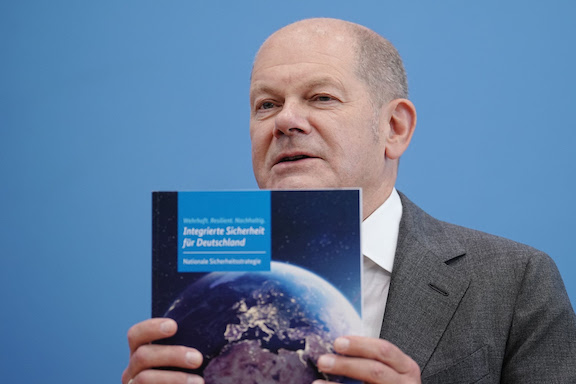By Doris Pundy, dpa I MONDAY, SEPT.11, 2023
BERLIN – The German economy is projected to decline by 0.4% in 2023, while average growth in the European Union will grow at a slower-than-expected 0.8%, the European Commission said in a forecast published on Monday.
The commission had initially expected the German economy to grow by 0.2% this year and saw EU growth at 1%. Economic growth in the first half of 2023 “was significantly weaker than previously expected,” EU Economy Commissioner Paolo Gentiloni said in Brussels.
The downward trend is driven by declining wages weighing on consumption and lower exports, Gentiloni said.
In 2024 the German economy is expected to grow by 1.1%, down from the 1.4% previously seen, according to the commission’s quarterly forecast.
“Domestic consumption, domestic demand, household purchasing power could be improved in the coming months and this could bring the German economy back on a growth trajectory,” Gentiloni said.
Asked whether Germany is to become the EU’s next big economic problem or the “sick man of Europe,” as media reports have put it, Gentiloni urged caution. The German economy is strong and has the tools to recover, he said.
Across the 27-member bloc persistently high inflation is the main reason why economies will grow at a slower-than-expected 0.8% in 2023, according to the commission.
The initial estimate for EU growth next year was revised down to 1.4% from 1.7%, a press release said.
Figures for the 20 EU countries that make up the eurozone common currency will also post a slower-than-expected growth with 0.8% seen for 2023 – down from 1.1% – and 1.3% in 2024 – down from 1.6%.
Germany is not the EU’s only main economy struggling to pick up pace. Italy’s annual growth in 2023 was revised down to 0.9%, compared to 1.2%, driven by a decline in domestic demand, Gentiloni said.
Figures for France however have been revised upward. The economy is now expected to grow by 1% in 2023, compared to the previous estimate of 0.7%, fuelled by increasing exports and relatively low inflation.
Spain’s economy also exceeded expectations in the first half of 2023, Gentiloni said, prompting the commission to correct its forecast for the year to 2.2%, up from 1.9%. The overall slow-down of growth across the EU is driven by a weakened demand due to persistently high inflation rates, the commission said.
“The EU economy has suffered two massive shocks with the pandemic and Russia’s unprovoked war in Ukraine. The very high inflation rate has taken its toll, although it is now receding,” European Commission Vice-President Valdis Dombrovskis said.
EU inflation rates are now projected to reach 6.5% in 2023 and 3.2% in 2024. In the eurozone, consumer prices are to rise by 5.6% in 2023 and by 2.9% in 2024.
Despite slower economic growth, the EU’s labour market is “exceptionally strong,” the commission said, with low unemployment rates, continued expansion of employment and rising wages.
“While our economy remains on a path of growth, uncertainty remains high and we need to monitor risks closely,” Dombrovskis stated.
Russia’s ongoing war against Ukraine, high interest rates, persistent inflation and the economic impacts of extreme weather events caused by climate change continue to pose risks to the bloc’s economy, the commission said.

